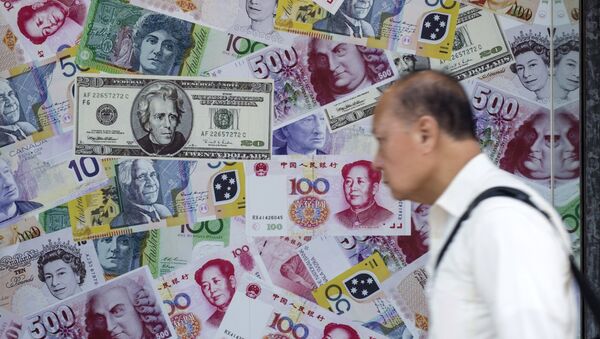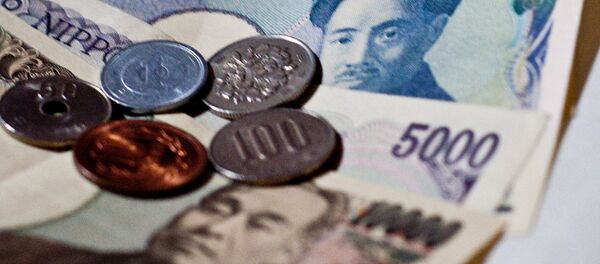Kristian Rouz — Although an initial shock to the market, the consequences of Beijing’s move did not produce any major developments in global trading, and market volatility decline by the week’s end.
Investors in the US are gearing up for next Wednesday’s publication of minutes of the most recent Federal Open Market Committee’s policy meeting, anticipating details on the looming rate hike in the US and also Washington’s reaction to mainland China’s move in the global currency war.
US financials outperformed other types of assets during this past week, while utilities performed worse than their average, as investors are expecting a dip in the US federal debt value and a subsequent rise in Treasury yields.
As a more recent bunch of macroeconomic data suggested more solid and sustainable US growth, most market participants are betting the Fed will raise US borrowing costs during its mid-September policy meeting, the first time since 2006.
The US macroeconomic data remains solid, with retail sales and industrial production outperforming earlier projections.
On Wall Street, Friday’s gains were more than modest after a rout triggered by the renminbi’s devaluation. However, the China-provoked concerns rendered US trading its tightest in roughly 90 years, with the S&P 500 Index tumbling some 10 points amidst record-high buybacks, and the trading range having narrowed dramatically.
The weekly losses in the MSCI’s All World Index reached 0.4%. The previous week was also lackluster for global stocks. China’s renminbi dropped 3% for the week, although the initial PBOC’s devaluation scope was 1.9%.
However, while the benefits of the move for the mainland’s exporters are evident, it is still unclear whether the renminbi’s devaluation will provide a sustainable downward pressure on other Asia-Pacific currencies, most notably the Japanese yen.
In the US, the S&P 500 added 0.7% during the week, however, the volatility was rife with the benchmark moving up and down within 2.5% of its value range. US stocks are still on their six-and-a-half-year rally, sustainable enough to withstand external shocks, chiefly, due to the immense size of the US financial markets.
However, the US shares gained this past week due to the impact of minor factors, while fundamentals suggested the market would have been flat. Stock buybacks and a correction in debt trading drove Wall Street along with bullish bets on Fed.
The S&P 500 gained early this week only to slump some 1% on Tuesday on renminbi concerns, having posted its worst trading day in three months. Yearly gains were erased by Wednesday’s further decline of 1.5%, but even since the benchmark recovered.
The Dow Jones Industrials Average rose 0.4% to 17,477.40 points, while the tech-driven Nasdaq Composite added 0.29% to 5,048.24 points.
In Europe, equity markets declined their worst in a month and a half, the average losses amounted at 2.9% as the renminbi devaluation hit the European exporters to China. The FTSEurofirst 300 Index dropped 0.1% on Friday, while the EuroSTOXX 50 lost 0.7%.
Capital investors are fleeing the emerging markets for the safety of developed economies, with the slump in the Turkish lira and the South African rand, not to mention the Russian ruble, illustrating the latest trends in financial flows. The US dollar, however, also dropped 0.1% against the yen to 124.37, but rose 0.3% against the euro to $1.1112.
In debt markets, the US benchmark 10-year Treasury yield rose to 2.20% after hitting its 4-month lowest of 2.04% on Wednesday. Debt value is on the decline, as are global oil prices. Gold was flat on Friday, but added 1.9% during the week, to $1,112.70/oz







